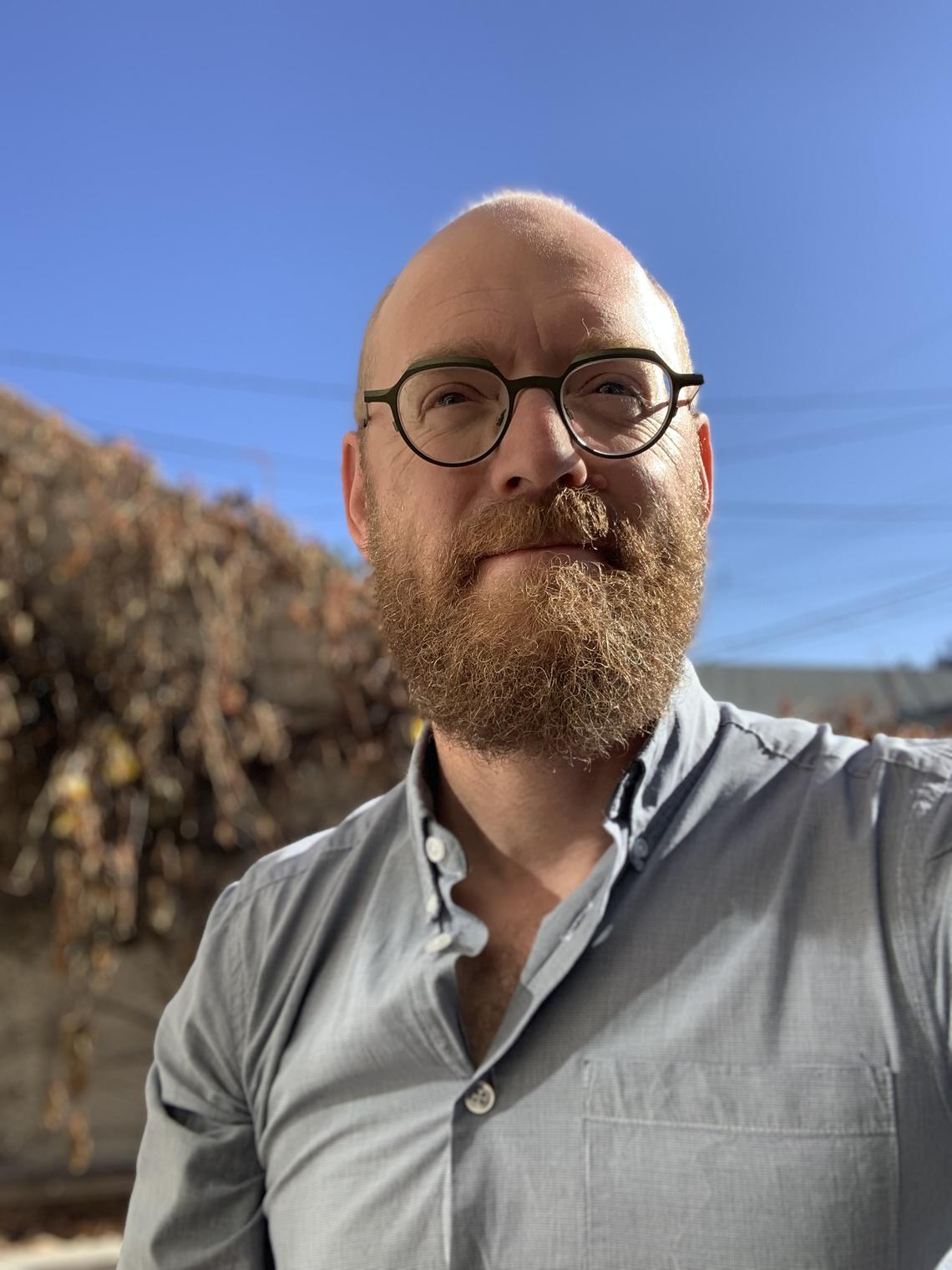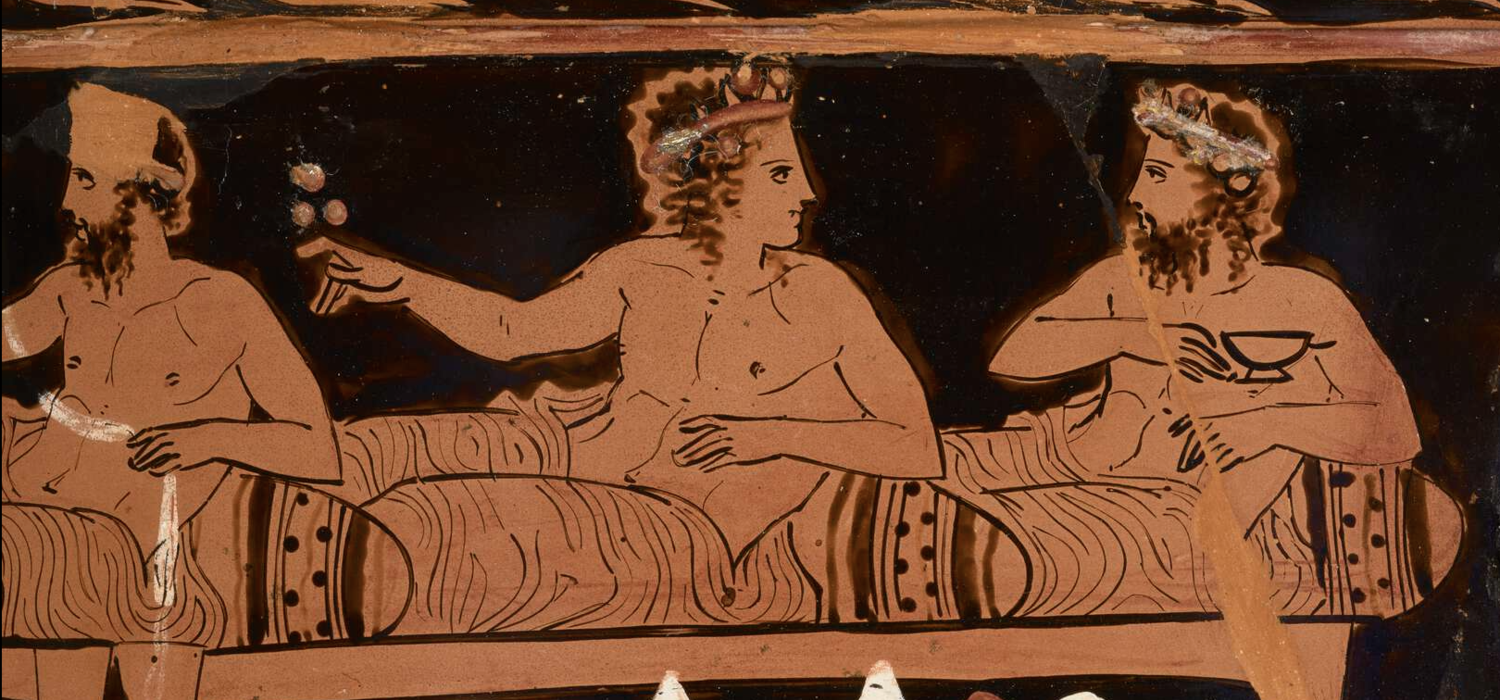
Oct. 15, 2021
What We Are Learning This Week with Dr. Josh Goldstein

October 18, 2021 in POLI 406 Greek Love and Wisdom
Dr. Josh Goldstein is exploring Plato’s Symposium, focussing on Aristophanes’ bizarre & strangely modern speech about love (erōs) as finding our other half!
Can you tell us a little more about this topic?
For many of us, one of the most astonishing and unshakeable experiences of first being in love is that certainty that you were meant to be with this person, that they’re your other half, and you would be damaged and incomplete without them. In Plato’s most famous dialogue on erōs (romantic love)—the Symposium—he has the great Greek comic poet, Aristophanes, give us a bizarre and comedic origin story for this experience: We were originally double-faced, eight-limbed spherical beings, then split-in-two by the gods, who then spend our time running about searching for our loped-off other half. To us moderns, the myth’s appeal is its conception of an original nature or sexual orientation—otherwise so foreign to Greek sexual ethics—as the driver for erotic action. This week we explore the way in which Aristophanes’ erotic use of this original nature might opens up as well as close off our highest aspirations for what erōs can do to us and where it can take us.

What else do you cover in your course?
This course explores mainly Classical Greek ideas of the nature, life, and good of erōs (romantic love), philia (friendship), ta aphrodisia (sex or bodily gratification), and gamos (marriage) in an attempt to make us aware of different ways of thinking about and living out our deepest connections to others, the community, and the kosmos. We begin the course with some famous Athenian courtroom oratory—Demosthenes’ Against Neaira and Aischines Against Timarchos—to help establish the everyday Athenian view of properly erotic relations for certain types of women and men. Then we turn to Plato’s Symposium and Phaedrus where we look, of course, at the male lover-beloved relationship. Through excerpts from Xenophon’s Oeconomicus we reconstruct an Athenian idea of the wife as economic partner and then look at its transformation into a genuinely loving couple-relation in Plutarch’s much later Advice to the Bride and Groom. We finish off the course with Aristotle’s account of friendship in the Nicomachean Ethics as a possible replacement for erōs!
What do you love about teaching this course?
Political philosophy is about the connection of ideas to the way that we live our lives… and nothing can occupy our thoughts and actions—especially when young!—as much as love, wanting to experience it, wondering what that experience is, thinking about how to act on it, and so on. So, this course allows one to do political philosophy in a really embodied and fully engaged way: thought and action and their relationship are always at play whenever erōs is concerned! Plus, the works that we read are some of the most provocative, funny, poignant, elevating works on the human condition. You can’t beat that for teaching!
Finally, what other courses would you recommend for students interested this topic?
Any political philosophy course will be great, but for those interested who want to learn about different ways of thinking about and relating to the body should take a look at POLI 417 Feminist Political Theory and POLI 505 Sexual Ethics. For students who want to learn more about the wider issues of freedom, justice, and the good which animate theories of a fulling life, POLI 409 The Foundations of Modernity, POLI 411 Recent Critics and Defenders of Modernity, and POLI 407 Classical Political Thought are excellent.
More policy oriented students who want to see how the ideas articulate themselves in the exercise of the community’s capacity for coercion and development should look at POLI 506 Social and Global Justice, POLI 453 Women and Politics, and POLI 554 Women and Public Policy. And let’s not forget our friends in other departments! Students can take a look at PHIL 259 Sex, Love and Death, ENGL 361 Gender and Sexuality in Literature, and INDG 395 Topics in Indigenous Gender, Sexuality and Feminism!
Our thanks to Dr. Josh Goldstein for sharing your course with us!
Follow Dr. Goldstein on Twitter @JoshDGoldstein
